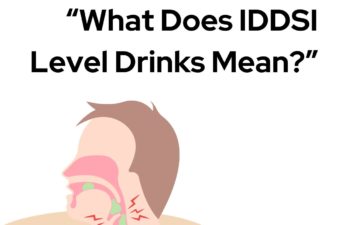Dementia, a broad term encompassing various neurological conditions that impair memory and cognitive abilities, can have a host of debilitating effects on a person’s day-to-day life. Among the lesser-known but highly impactful complications is dysphagia or difficulty swallowing[^1^].
Dysphagia in the Context of Dementia
Swallowing is a complex action that requires precise coordination of various muscles and nerves. However, dementia can disrupt this finely tuned process, leading to dysphagia. The underlying cause is often the brain’s inability to send the correct signals to the muscles involved in swallowing, resulting in dysfunctional swallowing mechanics^2^.
Dysphagia in people with dementia can manifest as coughing or choking while eating or drinking, recurrent pneumonia, unexplained weight loss, and changes in eating behaviour[^3^]. These symptoms might not always be immediately evident but they pose a serious health risk, potentially leading to malnutrition, dehydration, and aspiration pneumonia—a lung infection that occurs when food or liquid is inhaled into the lungs^4^.
Management and Care
Managing dysphagia in people with dementia can be challenging but is crucial for maintaining their health and quality of life. Treatment often involves a multidisciplinary approach, including speech and language therapists, dietitians, and occupational therapists[^5^].
The main focus is ensuring that individuals can eat and drink safely. This may involve modifying the texture of foods and liquids to make them easier to swallow, as well as teaching safe swallowing strategies[^6^].
In recent years, innovative solutions like the dysphagia drinks machines developed by Refreshment Systems Ltd have also emerged. These machines can prepare beverages that comply with the different dysphagia levels established by the International Dysphagia Diet Standardisation Initiative (IDDSI), offering a convenient and safe way to hydrate and nourish individuals with dysphagia[^7^].
Conclusion
The intersection of dysphagia and dementia presents unique challenges for individuals, their families, and caregivers. However, with a combination of professional healthcare support, personalised care strategies, and innovative technological solutions, it is possible to manage these challenges and ensure the comfort and wellbeing of individuals affected by these conditions.
[^1^]: Mayo Clinic, Dementia
[^3^]: NHS, Dementia and eating
[^5^]: National Institute on Aging, Swallowing Problems in Older Adults
[^6^]: American Speech-Language-Hearing Association, Adult Dysphagia
[^7^]: Refreshment Systems Ltd, Dysphagia Solution




